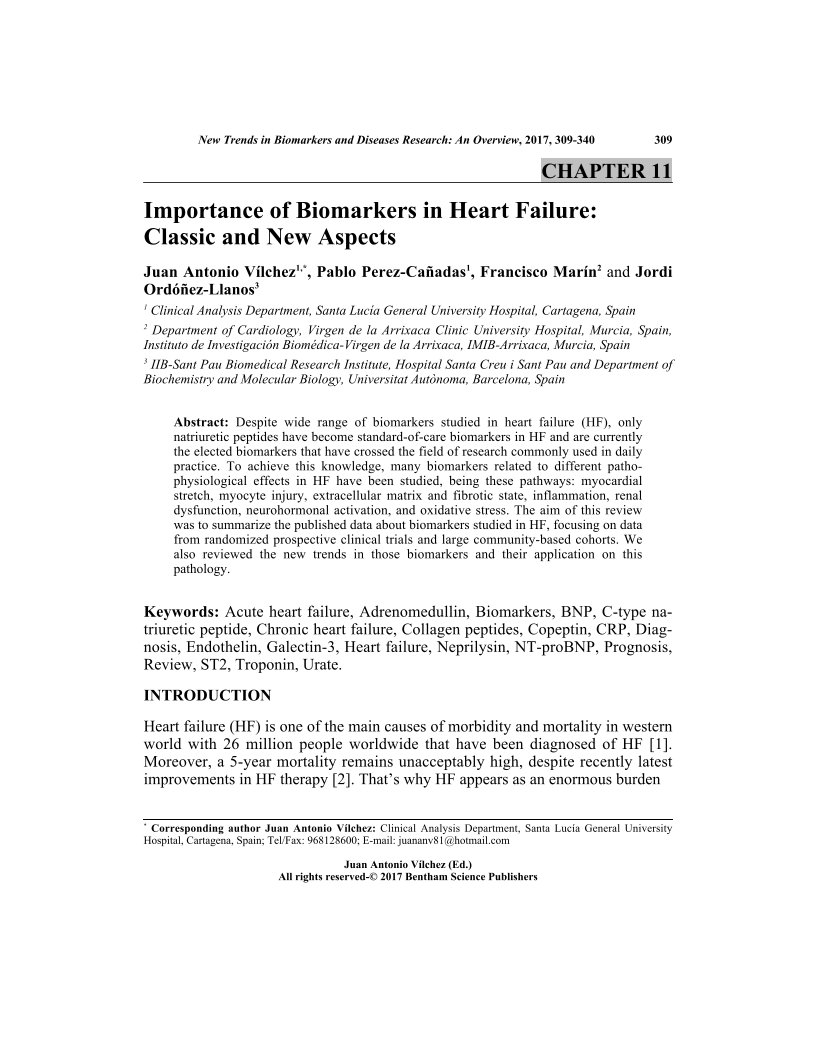Importance of Biomarkers in Heart Failure: Classic and New Aspects

- Authors: Juan Antonio Vílchez1, Pablo Perez Cañadas2, Francisco Marín3, Jordi Ordóñez-Llanos4
-
View Affiliations Hide Affiliations1 Clinical Analysis Department, Santa Luca General University Hospital, Cartagena, Spain 2 Clinical Analysis Department, Santa Luca General University Hospital, Cartagena, Spain 3 Clinical Analysis Department, Santa Luca General University Hospital, Cartagena, Spain 4 Clinical Analysis Department, Santa Luca General University Hospital, Cartagena, Spain
- Source: New Trends In Biomarkers and Diseases Research: An Overview , pp 309-340
- Publication Date: September 2017
- Language: English
Importance of Biomarkers in Heart Failure: Classic and New Aspects, Page 1 of 1
< Previous page | Next page > /docserver/preview/fulltext/9781681084954/chapter-11-1.gif
Despite wide range of biomarkers studied in heart failure (HF), only natriuretic peptides have become standard-of-care biomarkers in HF and are currently the elected biomarkers that have crossed the field of research commonly used in daily practice. To achieve this knowledge, many biomarkers related to different pathophysiological effects in HF have been studied, being these pathways: myocardial stretch, myocyte injury, extracellular matrix and fibrotic state, inflammation, renal dysfunction, neurohormonal activation, and oxidative stress. The aim of this review was to summarize the published data about biomarkers studied in HF, focusing on data from randomized prospective clinical trials and large community-based cohorts. We also reviewed the new trends in those biomarkers and their application on this pathology.
-
From This Site
/content/books/9781681084954.chapter-11dcterms_subject,pub_keyword-contentType:Journal -contentType:Figure -contentType:Table -contentType:SupplementaryData105

